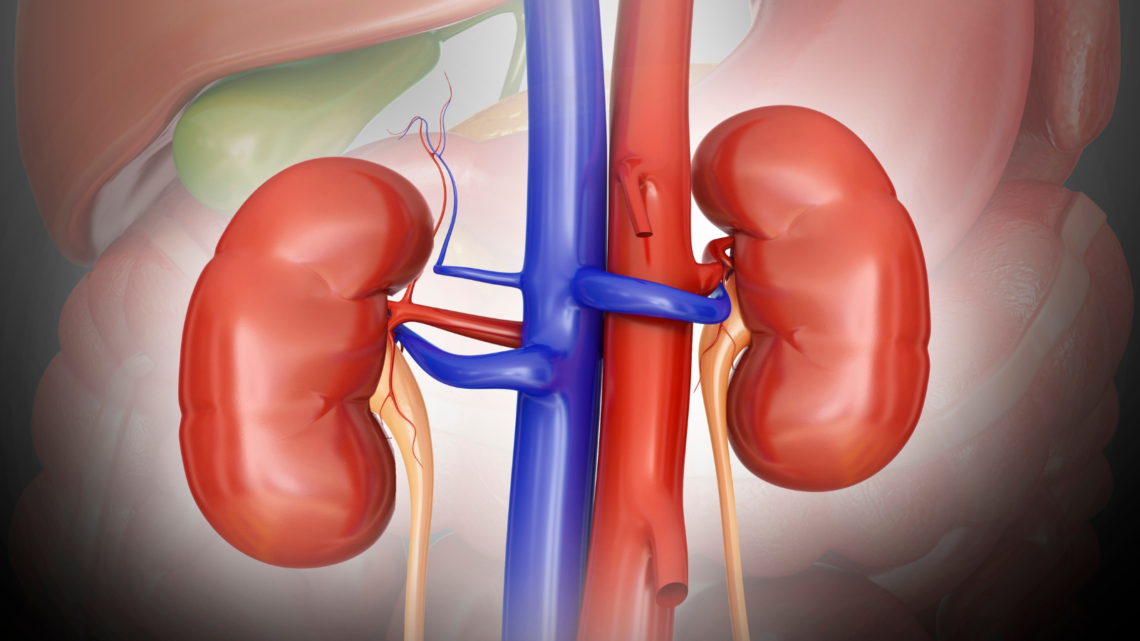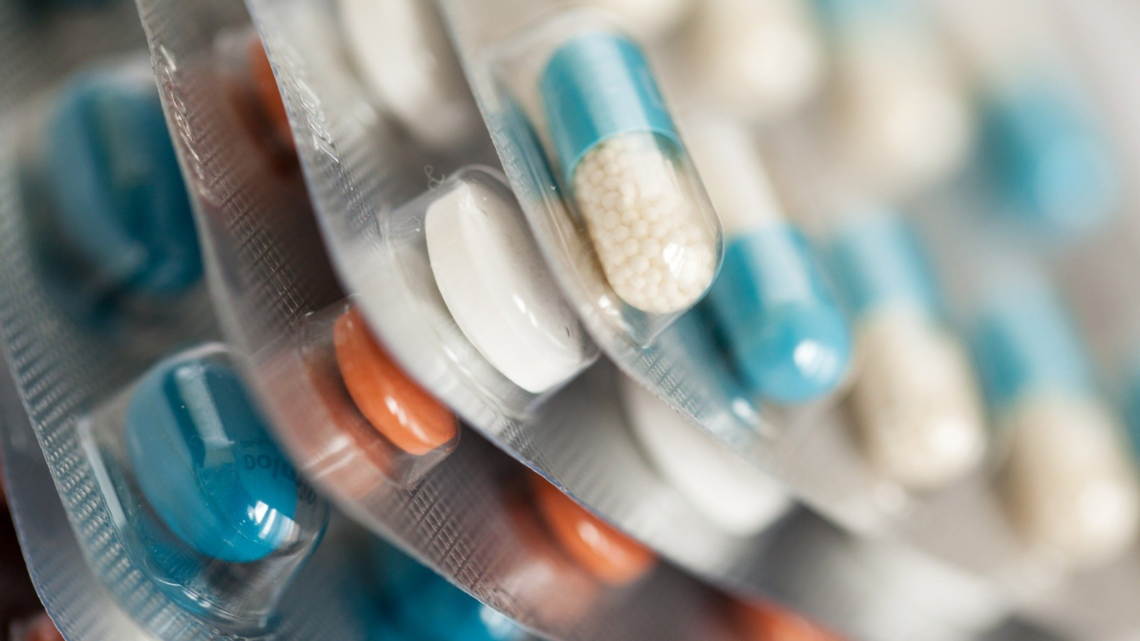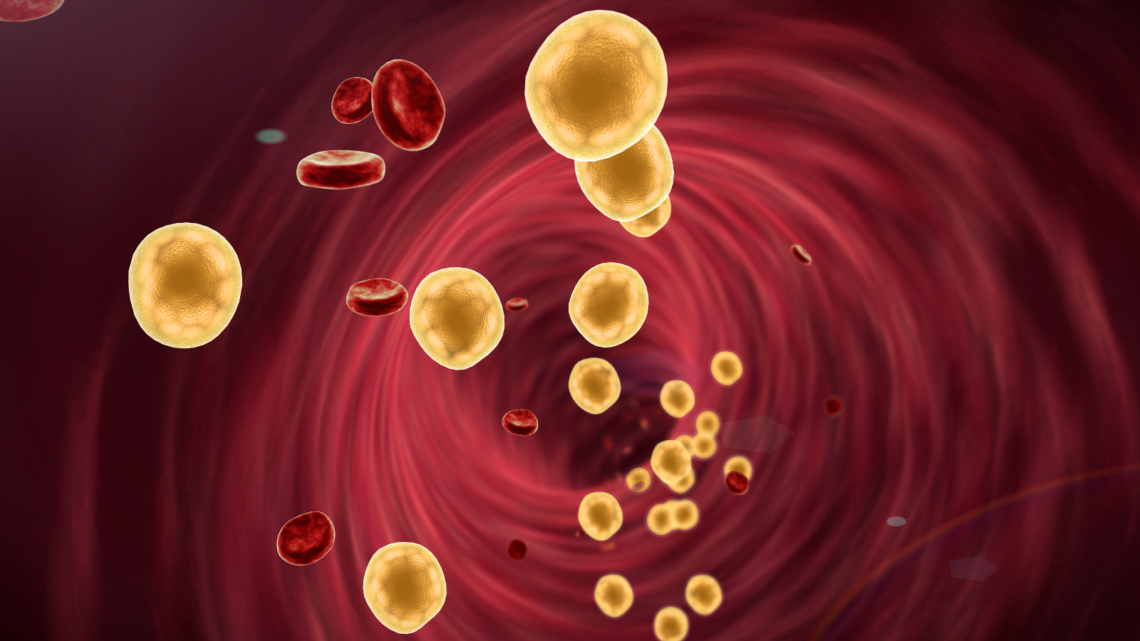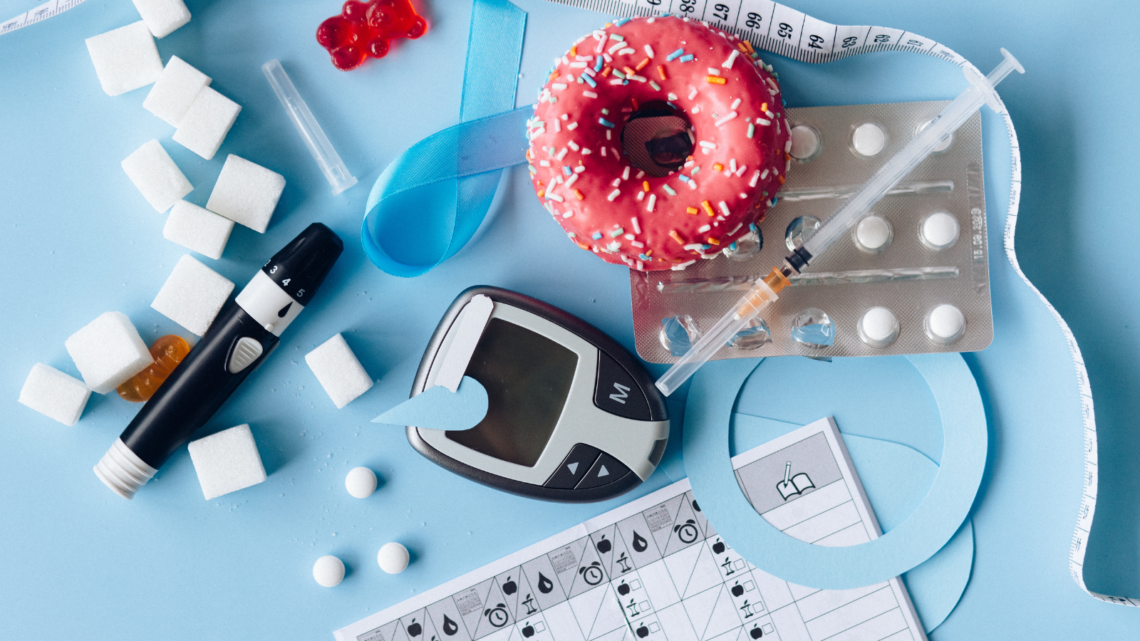-
Ear Infections
Ear infections are a type of bacterial infection that are most common in children, though they can also affect adults. There are two common types of ear infections, including otitis media (AOM) and otitis externa – also known as swimmer’s ear. It’s also possible to develop otitis media with effusion.
Otitis Media
When you develop an infection of the middle ear (located just behind the eardrum), this is known as otitis media. It is caused by fluid being trapped behind the eardrum, causing it to swell. Among the most common symptoms associated with otitis media include earache, feeling as though your ears are plugged/full, hearing difficulty, and you may also notice that the affected ear has some fluid drainage. In addition to these symptoms, it’s also possible to develop a fever as a result of otitis media.
Treatment: Oral antibiotics, ear drops, nasal steroids, antihistamines.
Otitis Media with Effusion
Unlike otitis media, an infection is typically not present with otitis media with effusion. Otitis media with effusion can develop as a result of a cold, throat, or an upper respiratory infection (such as a sinus infection), and poor function of the eustachian tubes. It causes an accumulation of fluid in the middle ear, and symptoms can be very similar to that of an ear infection. Usually this condition will resolve on its own, although it can last anywhere from 4 to 6 weeks. If it persists, it’s possible for the fluid in the ear to become infected and develop into acute otitis media.
Treatment: Otitis media with effusion is not treated with antibiotics (unless you happen to have an underlying infection that is present, such as respiratory infection) and will usually go away on its own. Children, however, may require myringotomy tubes in order to help drain fluid and relieve pressure from the middle ear.
Otitis Externa
When you develop an infection of the outer ear (the external ear canal, which is the tube located between the outer ear and the eardrum), this is known as otitis externa – also commonly known as swimmer’s ear. Symptoms of otitis externa can include ear pain (which can sometimes be severe), itchiness of the ear canal, temporary hearing loss, as well as a discharge of liquid/pus from the affected ear. Along with a bacterial infection, other causes of otitis externa can include fungal infections and even allergies. You are also more susceptible to developing otitis externa if you swim on a regular basis or regularly get water inside of your ears.
Treatment: This condition can go away on its own without treatment, however your doctor may also prescribe ear drops to help relieve symptoms.
Risk Factors
Risk factors for the development of ear infections include short/narrow eustachian tubes, being exposed to second-hand smoke, altitude changes, climate changes, use of q-tips, and having a history of chronic ear infections. If you are someone who develops ear infections frequently, you may need to be referred to an ear, nose and throat specialist.
-
Food Preservatives: Friend or Foe?
When it comes to diet, many of the foods we consume contain preservatives; and sometimes those preservatives are consumed unknowingly as we don’t always tend to think twice about reading food labels to find out what, exactly, we’re putting into our bodies. If you do read food labels and can’t pronounce half of the list of ingredients, chances are it likely contains preservatives and isn’t something that you should be eating in the first place – snack foods such as cookies and crackers are a prime example.
Preservatives are a type of additive used in certain foods to prolong their shelf-life and prevent them from going bad – i.e. going moldy, growing yeast, or bacteria. Some preservatives you might be more familiar with include ascorbic acid, aspartame, taurine and nisin. Ascorbic acid is an FDA-approved form of vitamin C that is found naturally in different fruits and vegetables and is considered an antioxidant. It also prevents certain foods, such as cereals, as well as beverages, from spoiling. Aspartame is also something you may have heard of before. It’s an artificial sweetener also sold by the name NutraSweet, which people will sometimes use in coffee. Aspartame is also commonly found in diet sodas, certain teas, and energy drinks. Also found in certain energy drinks is taurine – and it can help maintain the balance of water and electrolytes in the blood. Research has suggested that consumption of anywhere from 3,000 to 4,000 milligrams of taurine per day is considered safe and shouldn’t have any adverse reactions on one’s health. Another preservative that is considered safe to eat is nisin, as it’s known for its anti-bacterial properties. It is commonly found in meat, poultry, cheese and salad dressings.
Then there are other preservatives that are cause for concern. These include sulfites, sodium benzoate, nitrite, and BHA/BHT. Sulfites stop food from browning/discolouration, and are commonly used in baked goods, as well as canned fruits and vegetables. However, sulfites have also been linked to asthma as well as allergies. Sodium benzoate is another questionable preservative, as researchers believe that it can create a carcinogen known as benzene when mixed with vitamin C. When it comes to processed meat (hot dogs, for example), nitrite is a preservative you will also most likely find, and has been linked to different types of cancers – as has the preservative known as BHA/BHT.
When it comes to buying foods and ensuring your shopping experience is as preservative-free as possible, you should always read the labels before putting it in your cart. If you can’t pronounce anything on those labels, don’t buy it. You should also always opt for fresh foods rather than canned, as well as foods that are organic and labelled as being natural, as they are more likely to be free of artificial flavouring, additives and dyes.
-
Kidney Disease
The number of Canadians living with kidney disease has been steadily increasing over the years. Currently, an estimated 1 in every 10 Canadians have kidney disease, while it affects as many as 850 million people worldwide. The kidneys are responsible for filtering excess water and waste from your blood and converting it to urine. They’re also responsible for balancing salt and minerals in your body, including calcium, sodium, potassium, and phosphorus, in addition to creating red blood cells, controlling blood pressure, and strengthening bones. However, when you have kidney disease, this means that your kidneys cannot properly filter blood in the way it should be. Over time, this can lead to kidney failure.
Because kidney disease can progress silently, early detection is key for being able to make the appropriate changes necessary in order to improve the health and function of your kidneys. There two main ways that kidney disease can be diagnosed: Through a blood test, or by urinalysis. A blood test will measure your level of serum creatinine, which will indicate how well your kidneys are (or how well they aren’t) functioning and filtering blood. During a urinalysis, labs techs will look for a protein known as albumin in your urine. If this protein is present, then there is a strong likelihood that your kidneys have some damage. The higher the albumin level is, the higher your risk is of losing function of your kidneys. Kidney disease can also be detected through biopsies, ultrasounds, and X-rays.
As for how you can prevent kidney disease from developing, it’s important that you have your blood pressure checked on a regular basis. If you have high blood pressure, this can speed up kidney disease – particularly if your high blood pressure is uncontrolled. Some medications have also been known to contribute to kidney disease, like over-the-counter painkillers such as NSAIDs. If you are going to be taking an over-the-counter medication, you should first double check with your physician or pharmacist to make sure it’s safe.
As mentioned, kidney disease is often a silently progressing disease, meaning symptoms will not always be present until it has reached a later stage. However, there are some symptoms that one can develop that may be an indicator of kidney disease and kidney failure. You may feel fatigued or find that you’re sleeping for an extended amount of time, you may feel cold, faint, dizzy or weak, your skin may feel itchy, you might have shortness of breath, have trouble concentrating or thinking clearly, have a swollen, puffy face or swelling of the hands or feet, upset stomach, nausea, vomiting, discoloured urine, have blood in your urine (which is one of the signs of kidney failure), or have difficulty passing urine.
Once you have received a definitive diagnosis of kidney disease, treatment is often geared towards treating the associated symptoms and any complications that can develop as a result of having kidney disease. For example, you may be prescribed medication to control high blood pressure or medication to lower cholesterol, medication to treat anemia, medical to treat swelling, as well as calcium D supplements to help protect and keep your bones strong.
If you develop kidney failure, you will most likely have to receive kidney dialysis, which is something that will artificially remove fluid and excess waste products from your blood when your kidneys are no longer able to do this on their own. In some cases, you may also require a kidney transplant. If you do undergo a kidney transplant, you will need to take medication to prevent your body from rejecting the new organ. In terms of diet, there are also certain things that you should avoid with kidney disease. For example, you should limit your intake of protein, as the more protein you eat, the harder it can be on weak kidneys. Foods that are high in potassium, such as nuts, avocados, mangos, bananas, oranges, spinach, tomatoes and potatoes, should also be avoided, as when you have kidney disease it can cause potassium to buildup in your body to levels that are considered unsafe. You also need to limit phosphorus, as well as your intake of salt, sugar, and starches. Canned foods and whole wheat bread should also be avoided. As for the types of foods that are considered safe to eat with kidney disease, some include apples, cranberries, blueberries, raspberries, strawberries, cherries, egg whites, onions, cabbage, cauliflower, and garlic.
-
Preventing Antibiotic Resistance
Antibiotics are used to treat different types of bacterial infections. If your doctor has prescribed you an antibiotic, then it’s important that you take it and follow the dosing instructions provided to you. If you fail to take the antibiotic, miss a dose, or do not take it exactly as directed, chances are your infection will remain, worsen, or require you to be on antibiotics for an extended period of time until you’re able to get rid of the infection.
Common types of bacterial infections that antibiotics are used to treat include strep throat, ear infections, sinus infections, pneumonia, urinary tract infections, and skin infections. They work by preventing bacteria from multiplying as well as kill off bacteria. However, antibiotics won’t be effective in treating things like the common cold, influenza, chicken pox, measles, upset stomach or diarrhea – as these are often all viral in nature. It is possible to develop something like a sinus infection along with a common cold, however. If this is the case then you will still be required to take antibiotics – not for the cold itself, but for the infection.
When you fail to take antibiotics exactly as prescribed or take them unnecessarily (i.e. when you have a viral infection as opposed to a bacterial infection), you increase your risk of developing something known as antibiotic resistance. Antibiotic resistance occurs when bacteria becomes resistant to certain antibiotics used to treat them. The biggest concern that healthcare providers have when it comes to antibiotic resistance is that common infections, such as strep throat or pneumonia, which are usually easily treated, will eventually become untreatable in patients who overuse or abuse antibiotics. If you don’t take antibiotics as prescribed, bacteria can thrive and continue to spread. Along with not taking prescribed antibiotics properly, other examples of antibiotic misuse include giving your medication to others when it is not needed, or self-medicating with leftover antibiotics from prior bacterial infections. In the event that you did not finish your antibiotics (having been told to stop them by your family physician), then you should always return any unfinished medications to your pharmacy for proper disposal.
It’s also important to know how drug-resistant bacteria can be spread. Just like any bacterial infection, drug-resistant bacteria can also be spread from person-to-person (such as coughing, sneezing, or being exposed to bodily fluids), by touching contaminated surfaces (such as utensils, keyboards and doorknobs – and bacteria can survive on these types of surfaces for an extended amount of time.) It can also be spread through food, water and soil (i.e. meat, poultry, dairy products, and by drinking contaminated water), by having direct contact with certain animals (such as cats, dogs, reptiles, farm animals) and animal manure, as well as from international travel.
The best way to prevent antibiotic resistance is to use antibiotics responsibly. You can also take extra precautions to prevent illness. The best way to prevent illness is to ensure you practice good hygiene, such as washing your hands frequently (and properly!) with warm soap and water (as well as keeping them away from your eyes, nose and mouth), wiping down contaminated surfaces, and even practicing food safety – as food that is not prepared properly is one of the most common and easiest ways to develop food borne illness, such as food poisoning, e.coli, salmonella, etc.
-
Understanding Cholesterol: LDL vs. HDL
Cholesterol is made by your liver and is a type of fat that is found in your blood. We also get cholesterol from some of the foods we eat, such as high-fat foods, which can lead to health problems – something we’ll talk about more. As we age, it’s important to have your cholesterol levels checked regularly – though trying to interpret what your cholesterol numbers mean can sometimes be confusing, which is why it’s important to know about terms like LDL and HDL, as well as which foods are good and which are bad when it comes to ensuring your cholesterol levels are where they need to be at so that you’re as healthy as possible.
As mentioned, there are two types of cholesterol: LDL and HDL. LDL, which is abbreviated for low density-lipoprotein, is known as the “bad” cholesterol as it can build up on the walls of your arteries which ultimately increases your risk of developing heart disease, which also increases your risk of things like heart attacks. If you’re someone with a pre-existing condition like heart disease or blood vessel disease, then it’s ideal for you to have an LDL level that is less than 70, while other high-risk individuals (such as those with various risk factors for heart disease, or those who’ve been diagnosed with other medical conditions like diabetes) is to have an LDL level of less than 100. HDL, abbreviated for high-density lipoprotein, is known as the “good” cholesterol and protects against heart disease by removing the “bad” cholesterol from your blood. HDL levels should always be higher, with an optimal level being around 60; while an HDL reading of less than 40 is also considered to be a major risk factor for heart disease.
The number one patients have when it comes to improving their cholesterol levels is, “What can I do?” – and the answer is simple: Live a healthier lifestyle. Of course there are things like age, gender, and genes that can all play a role in our cholesterol levels changing, and these are things that we cannot alter; however, things like diet, weight and physical activity level also all play a major role in keeping your cholesterol levels from being healthy or skyrocketing to levels that are considered unhealthy. By getting regular exercise (at least 30 minutes each day) and staying at a healthy weight, you will not only lower your triglyceride levels but also raise your HDL level. When it comes to diet, foods that are high in saturated and trans fats play the biggest culprit in having unhealthy cholesterol levels, so try to decrease the amount of these fats from your diet.
Foods that should typically be avoided if you’re wanting to improve your cholesterol include things like red meat (such as fatty beef, sausage or bacon), organ meats (such as liver or kidney), pork, lamb, poultry with skin, certain dairy products (especially those made from whole or reduced-fat milk), packaged foods (such as cookies), desserts (such as cakes, donuts and pastries), potato chips, crackers, buttered popcorn, as well as saturated vegetable oils (such as palm oil, palm kernel oil, and coconut oil) and anything containing partially hydrogenated or hydrogenated vegetable oils.
As for the foods you should include more of in order to improve your cholesterol, these include foods that are high in fibre (such as nuts, seeds, legumes, and fish like salmon, sardines and tuna.) You can also cook with and eat foods that contain nontropical natural vegetable oils (such as olive oil, canola oil, avocado oil, and safflower oil.) You should change your cooking methods; for example, use a rack to drain off any excess fat with roasting, baking and broiling meats and/or poultry, and opt for broiling your foods rather than grilling or pan-frying them. You should also remove skin from poultry and cut off any visible fat from meat, in addition to avoiding basting meat with fat drippings.
-
Melatonin
Made by the pea-sized pineal gland, melatonin is a type of natural hormone (often referred to as the “sleep hormone”) that helps regulate your circadian rhythm and tells your body when it’s time to go to sleep and when to wake up. While many people don’t have any issue getting to sleep at night, there are other individuals who might have a hard time falling or staying asleep, which is also commonly referred to as insomnia – and if you happen to be one of those people, then your body may need additional melatonin, which can be obtained through taking a melatonin supplement. Aside from treating insomnia, melatonin has also been known to help with the treatment of other sleep disorders, including delayed sleep phase, and even jet lag. It also acts as an antioxidant and can improve or reduce the risk of many different health conditions.
While melatonin is considered safe for both short and long-term use, it is typically recommended to only be taken on a short-term basis due to the potential for developing side effects, including headache, dizziness, nausea, fatigue, anxiety, irritability, confusion/disorientation, and low blood pressure. In addition to these side effects, it’s also possible to become dependent on melatonin the longer you take it – and it may even have a decreased effect over time. Melatonin can also interact with certain medications, including anti-depressants, blood pressure medication, blood thinners, diabetes medications, contraceptive drugs, and immunosuppressant drugs (just to name a few.) Therefore, if you are taking medication and are considering adding in a melatonin supplement, you should always first check with your physician or pharmacist to ensure that there won’t be any interactions between it and any of the medication in which you’ve been prescribed.
Before trying melatonin, you may be able to get a good night’s rest simply by figuring out why you aren’t getting a good night’s rest. One of the most common reasons why people have such a hard time falling and staying asleep at night is due to spending too much time in front of a computer, their smartphone, or watching TV before bed. By cutting down your screen time and avoiding it at least 2 hours prior to going to bed, you may find yourself able to sleep better. Another mistake people make is drinking coffee late at night. Coffee contains caffeine, which is a stimulant – so unless you actually need to stay awake for all hours of the evening (i.e. if you’re cramming for an important test), then coffee is something I would suggest avoiding late at night. As an alternative, you can try tea. Tea has not only been known to help people fall asleep (chamomile, especially), but one cup of tea also contains less caffeine than a cup of coffee.
Something else you can consider looking into is magnesium, which is a natural muscle relaxant and also blocks the production of cortisol in the brain, which then causes the body to experience an overall calming effect and help you fall asleep. When you don’t have enough magnesium, the opposite occurs, and you may find yourself feeling more excitable or irritable, nervous, or stressed out than you usually would. Many of the North American population has less than the suggested levels of magnesium in their body, so it might not be a bad idea to start. In addition to helping you get better sleep, magnesium can also help fight depression, decrease high blood pressure, boost exercise performance, prevent migraines, and even has anti-inflammatory benefits.
-
Recognizing the Need for Rest
As gruelling as the days and weeks can sometimes be, or as energetic as you might even feel, and even as dedicated as you are to working out, our bodies also need time to recuperate. That means setting aside time to allow yourself some rest and relaxation. When you don’t give the body enough rest, it will often give off tell-tale signs to let you know when it’s feeling worn out – from fatigue, to general aches and pains, and other symptoms.
Getting regular physical activity is something I recommend, but it’s also possible to overexert yourself when doing so. One of the most common signs of overexertion is a new onset of insomnia. When you engage in vigorous physical activity, the CNS (also known as the Central Nervous System) becomes overstimulated, resulting in an inability to fall or stay asleep – and, as pointed out in previous articles, lack of sleep can be detrimental to the body in a number of ways. You might have a slower reaction time, decreased cognitive function, decreased immunity, and even increased irritability. While people used to regular physical activity will often not have any problems working out every day, those who are newer to physical activity (especially after being sedentary for an extended amount of time) should start slow and allow them one or two days of rest in between workouts. This will not only allow you to gain back your energy, but also allow time for your muscles to heal and significantly reduce your risk of developing an injury like a strain or sprain. It should also be enough to get your body back into its regular sleep pattern. If you’re still having problems with sleep, you should bring this up to your physician as soon as possible. In some cases, sleep problems do not have anything to do with physical activity and could instead be the result of other underlying medical conditions like sleep apnea, mental illness (i.e. anxiety or depression), asthma, and could even be environmental related. Another common sign that you need to give your body some rest is if your resting heart rate is elevated, which can also happen after vigorous physical activity. On average, a heart rate usually sits around 60 to 100 beats per minute for adults. The lower your resting heart rate is, the better your heart function is. However, if your resting heart rate is higher than normal (for example, above 100 beats per minute), then this means your body is working harder to pump oxygen to the recovering tissue and fix micro-torn muscles. As a side-note, your workouts will also start to feel harder the more you overexert yourself. If you want to stay active, something safe and healthy you can try while you take a day or two off from vigorous activity is yoga.
Soreness is not uncommon to experience after a workout routine, but if you’re frequently sore or experience frequent muscle cramps, joint pain, and even headaches, then these are all indicators that your body is breaking down, that there may even be some inflammation, and that it needs you to give it some time to recover. There are many ways you can find relief from muscle and joint pain, such as through physiotherapy, applying ice to the affected areas, or by taking over-the-counter pain relievers, such as acetaminophen or ibuprofen. However, something else that has been found to reduce inflammation and decrease pain associated with cramps is Omega-3 fatty acids. Some of the best omega-3 sources include fish such as salmon and sardines, nuts and seeds such as walnuts, chia seeds and flaxseed, as well as plant-based oils such as canola or soybean oil.
Your appetite can also be affected when the body is tired and hasn’t gotten enough rest. For example, you may simply feel too tired to cook, or you might actually have a decreased appetite. Eating is important, however – and even more important is making sure that the foods you’re eating are healthy. You also need to keep yourself hydrated. Not eating may decrease your energy level even further, cause hair loss, cause your body temperature to decrease and make you feel colder, cause you to feel shaky, dizzy, as well as other symptoms.
-
Differentiating Type I and Type II Diabetes
There are approximately 11 million Canadians currently living with diabetes, and someone new is diagnosed every 3 minutes. As many as 6 million Canadians have yet to be diagnosed with this chronic disease or are living with what’s known as “prediabetes.” During the prediabetes phase, your blood sugar reaches higher than normal levels but not quite high enough to be considered diabetic. However, research has also shown that certain complications linked to diabetes, such as heart disease, can happen as early as the prediabetic phase, therefore it’s important to have regular checkups with your physician and take any precautions that they recommend, such as changing your diet, checking your blood sugar regularly, etc.
There are two types of diabetes that one can be diagnosed with: Type 1 and Type 2. Each type of diabetes has very similar symptoms and tell-tale warning signs, including fatigue, hunger, thirst, frequent urination, dry mouth, itchy skin and blurred vision. However, some of the symptoms may differ, and they also affect the body in different ways.
Type 1 Diabetes
This form of diabetes occurs when the immune system attacks and destroys the insulin-producing cells in the pancreas known as beta cells. Once this happens, the body either produces less insulin than it should be, or no insulin at all, and sugar builds up in your blood rather than being used as energy. While Type 1 diabetes can develop in individuals of all ages, it typically occurs in children or adolescents. It’s also rare, as only 5% of individuals with diabetes are diagnosed with Type 1. While it’s not known what causes Type 1 diabetes, health experts know that genes play a role. It is also known to co-occur with certain autoimmune diseases, like Grave’s disease and vitiligo.
Common symptoms associated with Type 1 diabetes include increased hunger, dry mouth, thirst, nausea and vomiting, frequent urination, abdominal pain, unexplained weight loss, fatigue, blurred vision, labored breathing, as well as frequent infections of the skin or urinary tract. These symptoms are usually mild, though in some cases they may be severe. If your breathing becomes rapid, if you start shaking, feel confused, or lose consciousness, then these are signs that you are experiencing some kind of medical emergency and should have someone take you to the nearest ER or call 911.
As a result of having high blood sugar, you can also develop a condition that’s known as diabetic ketoacidosis (also known as DKA.) This condition occurs when the body doesn’t have enough glucose for fuel, and instead breaks down fat cells. Your liver then releases the sugar that is has stored, but without enough insulin the body cannot use it, and this then leads to a buildup of sugar in the blood as well as the creation of chemicals known as acidic ketones. It can be a life-threatening complication associated with diabetes and needs to be treated right away. Common treatment for DKA includes fluid and electrolyte replacement, as well as insulin therapy. Over time, high blood sugar levels can also cause harm to the. Nerves and blood vessels in the eyes, kidneys and heart, which also puts you at risk of suffering a heart attack or having a stroke.
Type 1 diabetes is treated with insulin to help control blood sugar. There are different types of insulin that you can be prescribed, including rapid-acting, short-acting, intermediate-acting, or long-acting. Your doctor will decide which is best for you. You will also need to check your blood sugar levels on a regular basis to make sure they remain within a healthy range, and you may sometimes need to adjust or decrease your insulin intake. In addition, you will also need to make certain lifestyle changes, such as with your diet, as well as physical activity.
Type 2 Diabetes
Type 2 diabetes is the most common form of diabetes that people are diagnosed with, affecting around 90% of all diagnosed cases of diabetes, and occurs when your body is unable to use the insulin that is released. This is known as insulin insensitivity or insulin resistance. Unlike Type 1 diabetes, which tends to affect more children than adults, Type 2 diabetes is the opposite in that it typically affects more adults than children.
There are many contributing factors that can lead to the development of Type 2 diabetes, including genes, being overweight or obese, a condition known as metabolic syndrome (including high glucose, triglycerides, high blood pressure, and high cholesterol), or it can be the result of improper communication between cells or broken beta cells. You’re also at an increased risk of developing Type 2 diabetes depending on your age (especially if you are 45 or older), ethnicity, or if there is a family history of Type 2 diabetes. Your risk also increases if you had gestational diabetes during pregnancy, polycystic ovary syndrome, or even depression. Lifestyle also plays a huge role; for example, if you don’t get enough exercise, are a smoker, or don’t get enough sleep. The good news is that these are lifestyle habits that you can change.
Symptoms of Type 2 diabetes can be so mild that many people may not even notice them, while you may also notice things like blurred vision, extreme thirst, frequent urination, blurred vision, tingling or numbness of the hands or feet, fatigue, wounds that don’t heal or take more time than normal to heal, frequent yeast infections, as well as irritability. Complications can also arise as a result of Type 2 diabetes, such as kidney problems, heart problems, nerve problems, as well as problems with sexual function.
To avoid complications, you need to make sure that your diabetes is well managed, and there are many different ways in which you can do this. First, you will need to check your blood sugar regularly to see where your levels are at. This will give your physician a better idea of what the right diabetes medication is for you and how frequently you will need it. In addition, combining diet and exercise with medication can also help control your blood sugar levels. A registered dietitian can help you come up with a healthy meal plan.
For more information on how you can take charge of your diabetes, visit www.diabetes.ca.
-
Medication Safety
The importance of understanding and adhering to medication safety protocols cannot be overstated, regardless of whether you take regular prescription medications or only need the occasional over-the-counter drug. These safety measures are fundamental yet vital, for the more informed you are about each medication you take, the better equipped you will be to manage your health effectively. Although most prescribed medications come with a detailed patient information sheet, it is not uncommon to have lingering questions about their proper usage. You might wonder about the correct way to take the medication, how frequently it should be administered, or if there are any unusual side effects you need to monitor. While you can certainly conduct a Google search to find answers to many of these questions, there is always the risk of running into information that is incorrect; therefore, it is preferable for patients to seek clarification directly from their prescribing physician or pharmacist. These healthcare professionals can provide personalized and accurate information that is crucial for safe medication use.
When it comes to taking medications, following the prescribed instructions precisely is of utmost importance unless your physician explicitly advises otherwise. For instance, if you have been prescribed a seven-day course of antibiotics, it is essential to complete the entire regimen, even if you begin to feel better before finishing the medication. Discontinuing the course prematurely or not taking the correct dosage can lead to a range of problems, including the recurrence of infections and the development of antibiotic resistance, which is a significant public health concern.
Before starting any new medication, it is crucial to inform your pharmacy of any other medications you are currently taking. This step is vital because certain prescription drugs can interact with one another, and some interactions can be dangerous, if not potentially fatal. Your pharmacist plays a key role in identifying possible drug interactions and can advise you accordingly. Should there be any conflicts between the medications you are prescribed and those you are already taking, a pharmacist can recommend safe and alternative medications for your doctor to consider prescribing.
It should be evident, but nonetheless, it bears repeating: never take a medication that has not been prescribed or specifically recommended to you by your physician. We often hear cautionary tales of individuals inadvertently taking drugs that are entirely different from what they believed they were consuming. For example, some medications might be contaminated with substances like Fentanyl, a potent synthetic opioid, which can be lethal even in minuscule amounts. Additionally, you might encounter medications that are expired or ones to which you have severe allergies. These scenarios underscore the necessity of obtaining medications only from trusted healthcare providers.
Moreover, it is imperative to store medications securely out of reach of children and pets. Both infants and animals are naturally curious and can easily crawl or climb to access areas where medications might be stored. To prevent accidental ingestion, medications should be kept in a hard-to-reach location or a locked cabinet. According to the Centers for Disease Control and Prevention (CDC), over 60,000 children are hospitalized annually due to accessing medications that were not adequately stored. If you suspect that your child has ingested any medication, it is critical to take them to the nearest emergency room immediately. For further guidance, you can contact the British Columbia Drug and Poison Information Centre (BC DPIC) at 604-682-5050 or toll-free at 1-800-567-8911. They provide a wealth of information, including a comprehensive list of prevention tips available on their website, which details proper medication storage techniques and actions to take in the event of an overdose or poisoning.
In addition to these precautions, many pharmacies participate in the BC Medications Return Program, established in 1996, which enables patients to return any unused or leftover medications. This program facilitates the safe disposal of medications and sharps, such as needles and syringes, thus preventing potential misuse and environmental harm. Participating in this program not only enhances community safety but also supports responsible medication management and environmental stewardship.
-
Signs of Dehydration
Dehydration is a condition that occurs when the body loses more fluids than it takes in, leading to an insufficient amount of water and other fluids to carry out its normal functions. This seemingly simple imbalance can have far-reaching consequences on our health and well-being, affecting everything from our physical performance to our cognitive abilities. While often overlooked in our busy day-to-day lives, maintaining proper hydration is crucial for optimal bodily function and overall health. Recognizing the signs of dehydration early on can be the key to preventing more serious health complications and ensuring that our bodies operate at their best.
Water is essential for life, making up about 60% of an adult’s body weight. It plays a vital role in numerous bodily functions, including regulating body temperature, transporting nutrients and oxygen to cells, removing waste products, cushioning joints, and maintaining healthy skin. When our bodies don’t have enough water, these processes can be compromised, leading to a range of symptoms that signal the urgent need for rehydration. Understanding these signs is not just important for our personal health; it’s a crucial skill that can help us recognize when others, especially those more vulnerable like children and the elderly, might be suffering from dehydration.
The causes of dehydration are varied and can stem from both everyday activities and more serious health conditions. Simple factors like not drinking enough water throughout the day, especially during hot weather or periods of increased physical activity, can lead to dehydration. Excessive sweating, whether from exercise, fever, or exposure to high temperatures, can rapidly deplete the body’s fluid reserves. Illnesses that cause diarrhea, vomiting, or increased urination can also quickly lead to dehydration if fluids are not adequately replaced. Certain medical conditions, such as diabetes, can increase the risk of dehydration, as can the use of diuretics or other medications that increase fluid loss.
It’s important to note that dehydration can affect anyone, but some groups are at higher risk. Infants and young children are particularly vulnerable because they have a higher surface area to volume ratio, which means they lose a higher proportion of their fluids through the skin. They also may not be able to recognize or communicate their thirst effectively. Older adults are another high-risk group, as the body’s ability to conserve water decreases with age, and the sense of thirst becomes less acute. Athletes, people working in hot environments, and individuals at high altitudes are also more prone to dehydration due to increased fluid loss through sweating and respiration.
Recognizing the signs of dehydration is crucial for prompt intervention and prevention of more severe health issues. While the symptoms can vary depending on the degree of dehydration, there are several common indicators that the body needs more fluids. These signs can range from mild and easily addressed to severe and potentially life-threatening. It’s important to be aware of these symptoms in ourselves and others, especially during situations where the risk of dehydration is higher, such as during intense physical activity, illness, or exposure to high temperatures.
Here are the key signs and symptoms of dehydration to watch out for:
- Increased thirst
- Dry mouth and lips
- Dark-coloured urine
- Decreased urine output
- Fatigue or lethargy
- Headache
- Dizziness or lightheadedness
- Dry skin
- Rapid heartbeat or breathing
- Sunken eyes
- Confusion or irritability
- Muscle cramps
- Cool, dry skin
- Lack of skin elasticity
- Low blood pressure
- Rapid weight loss
- Fever
It’s crucial to understand that these symptoms can vary in severity and may not all be present in every case of dehydration. The severity of symptoms often correlates with the degree of dehydration, ranging from mild to moderate to severe. Mild dehydration might only present with increased thirst and darker urine, while severe dehydration can lead to more serious symptoms like extreme thirst, lack of urination, rapid heartbeat, and even delirium or unconsciousness in critical cases. Recognizing these signs early is key to preventing the progression of dehydration and its potential complications. If you or someone you know is experiencing multiple symptoms of dehydration, especially the more severe ones, it’s important to take immediate action to rehydrate and seek medical attention if necessary.
The treatment for dehydration primarily involves replacing lost fluids and electrolytes. For mild cases, this can often be achieved by increasing fluid intake through water and other hydrating beverages. Oral rehydration solutions, which contain a balanced mix of water, salts, and sugar, can be particularly effective in replenishing both fluids and electrolytes. These solutions are especially useful for treating dehydration caused by diarrhea or vomiting. In more severe cases of dehydration, medical intervention may be necessary. This could involve intravenous (IV) fluids to rapidly restore hydration levels, especially if the person is unable to keep fluids down orally. It’s important to seek medical help if symptoms of severe dehydration are present, as untreated severe dehydration can lead to serious complications, including heat exhaustion, heat stroke, kidney problems, seizures, or even hypovolemic shock, a life-threatening condition caused by a severe drop in blood volume.
Prevention is always better than cure when it comes to dehydration. Maintaining proper hydration involves more than just drinking water when you feel thirsty. It requires a conscious effort to consume adequate fluids throughout the day, especially during conditions that increase fluid loss. The amount of fluid needed can vary based on factors such as age, sex, activity level, climate, and overall health. While the often-cited recommendation of eight 8-ounce glasses of water a day (about 2 litres) is a good general guideline, individual needs may vary.
To prevent dehydration, consider the following strategies:
- Drink water regularly throughout the day, not just when you feel thirsty.
- Increase fluid intake during hot weather, when exercising, or when ill, especially with conditions causing fever, diarrhea, or vomiting.
- Eat foods with high water content, such as fruits and vegetables, which can contribute to your daily fluid intake.
- Monitor the colour of your urine – pale yellow indicates good hydration.
- Avoid or limit beverages that can contribute to dehydration, such as alcohol and caffeinated drinks, which have a diuretic effect.
- For intense physical activity or prolonged exposure to heat, consider sports drinks that replace electrolytes as well as fluids.
- Set reminders or use apps to track your water intake if you have trouble remembering to drink regularly.
- Keep a water bottle with you throughout the day to make hydration more convenient.
- Drink water before, during, and after exercise, even if you don’t feel thirsty.
- Be aware of medications that might increase your risk of dehydration and adjust your fluid intake accordingly.
Understanding the importance of hydration and recognizing the signs of dehydration is crucial for maintaining overall health and well-being. Dehydration can affect various bodily functions and, if left unchecked, can lead to serious health complications. By staying vigilant and proactive about hydration, we can ensure that our bodies have the fluids they need to function optimally. It’s worth noting that while dehydration is a common and often easily addressed condition, it can sometimes be a symptom of underlying health issues. Chronic or recurrent dehydration, despite adequate fluid intake, may indicate problems with the body’s ability to regulate fluids and electrolytes. Conditions such as diabetes insipidus, which affects the body’s ability to conserve water, or certain kidney disorders can lead to persistent dehydration. In such cases, it’s important to consult with a healthcare provider to identify and address any underlying causes.
Hydration is not a one-size-fits-all approach; individual needs can vary based on numerous factors including age, activity level, climate, and overall health. However, by making a conscious effort to consume adequate fluids throughout the day, being aware of situations that increase fluid loss, and knowing how to recognize and respond to the signs of dehydration, we can ensure that our bodies remain properly hydrated. Remember, prevention is always better than cure. By incorporating good hydration habits into our daily routines, we can avoid the discomfort and potential dangers of dehydration. Whether it’s carrying a reusable water bottle, setting reminders to drink regularly, or being mindful of fluid intake during exercise or hot weather, these small habits can have a significant impact on our health and quality of life.
Stay hydrated, stay healthy, and remember – your body will thank you for every sip of water you provide it. The simple act of maintaining proper hydration is one of the easiest yet most impactful things we can do for our health each day.









